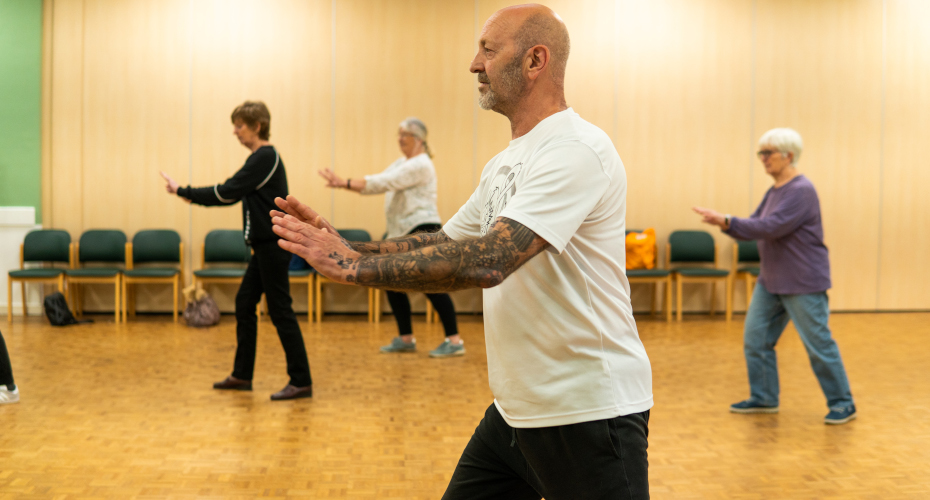Exeter plays key role in new toolkit to prevent falls in over 65s

A new digital toolkit designed to help reduce falls in older adults has been launched with the help of the University of Exeter.
The new Falls Management Exercise Programme (FaME) Implementation Toolkit is an evidence-based, practical guide aimed at improving delivery of community exercise programmes that can reduce falls by up to 30 per cent.
The National Institute for Health and Care Research (NIHR) Applied Research Collaboration (ARC) South West Peninsula (PenARC) at the University of Exeter was a key collaborator on the project, which aims to reduce falls amongst older people across Devon, the East Midlands, and Greater Manchester.
Professor Vicki Goodwin MBE was PenARC lead for the project and said: “The FaME programme not only reduces falls but increases confidence and supports people to get up, stay up, and live their best lives.
“In the region we have worked with local organisations including Active Devon, the South West Health Innovation Network and health and care organisations to increase opportunities for older people in Devon the access the programme.”
Hosted on a new dedicated online platform, the FaME Implementation Toolkit is freely accessible to providers, commissioners, and practitioners. It offers step-by-step resources for implementing the six-month, group-based exercise programme, which focuses on enhancing strength, balance, and confidence in adults aged 65 and over.
Falls remain a major public health concern, with one in three people over 65 and one in two over 80 experiencing at least one fall each year. They are the leading cause of emergency hospital admissions among older adults, contributing to over four million hospital bed days annually in England.
The toolkit was officially launched at the British Geriatrics Society Autumn Meeting, which showcases the latest scientific research and best clinical practice in the care of older people. Professor Elizabeth Orton from the University of Nottingham presented the toolkit and led a symposium on falls prevention programmes.
Professor Orton said: “The FaME programme is not only effective at reducing falls and improving physical function, but older adults genuinely enjoy it.
“Our new toolkit shows how FaME can be delivered in real-world community settings, and we hope it will encourage wider adoption across health and social care systems.”
The toolkit is a collaboration between the NIHR ARC East Midlands, NIHR ARC Wessex, NIHR PenARC and NIHR ARC GM, Health Innovation South West, and the Universities of Nottingham, Manchester, Exeter and Glasgow Caledonian, Later Life Training and the Royal Society for the Prevention of Accidents. It is part of a broader mission to equip local areas with the tools to tackle falls in older populations.
Professor Kamlesh Khunti, Director of the NIHR ARC East Midlands, added: “The impact of falls on older people can be devastating. With the new FaME toolkit, we now have the practical guidance needed to deliver proven interventions at scale, helping people remain active, confident, and independent.”
The ageing population is stimulating extensive NHS service redesign to deal with the challenge of caring for larger numbers of older people both in and out of hospitals. The BGS Autumn Meeting takes place annually to cover core areas of interest to all specialists responsible for the healthcare of older people.
The FaME Implementation Toolkit is now accessible online. For more information and to access the toolkit, visit https://fametoolkit.org.uk/auth/login.



